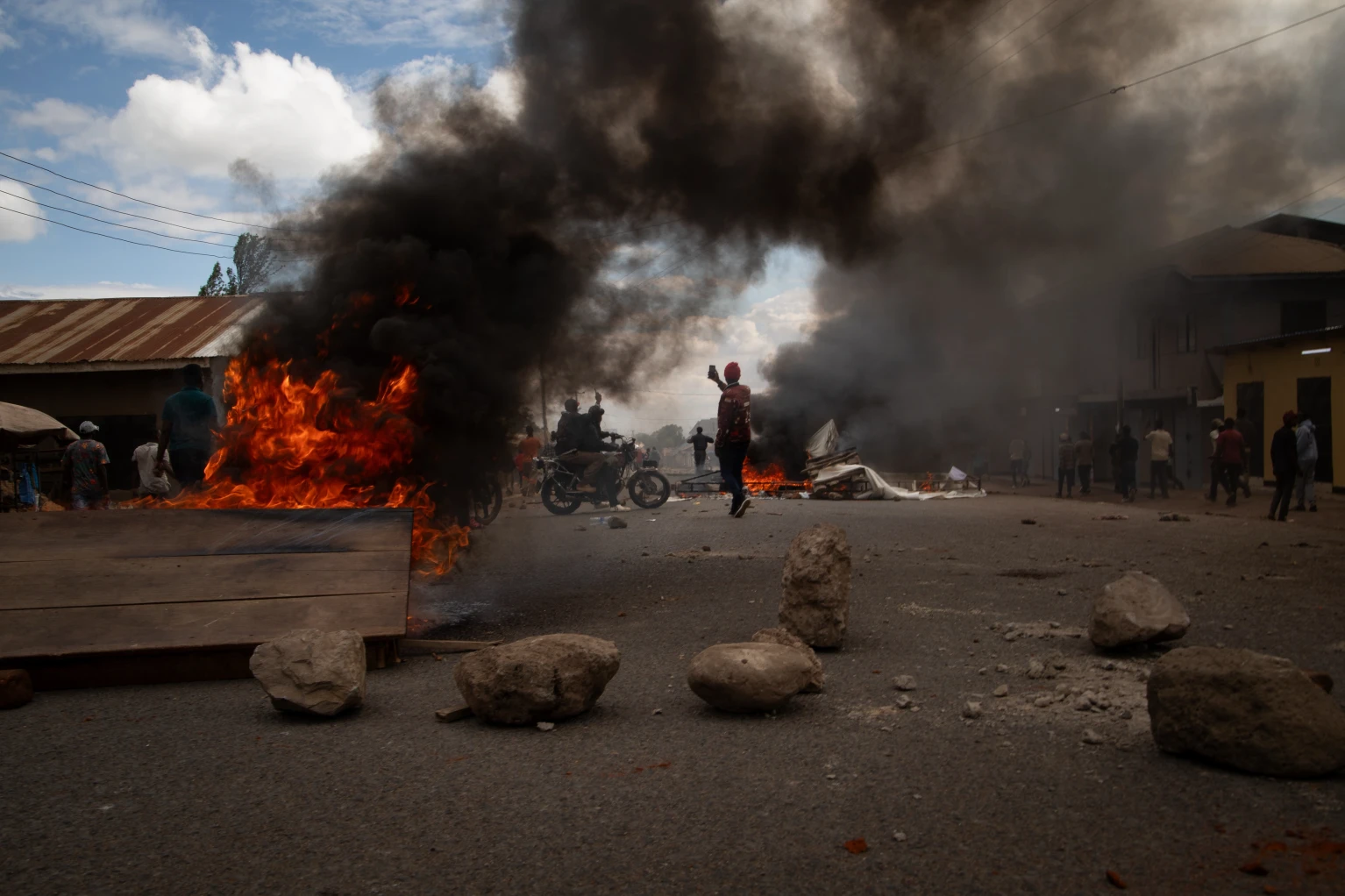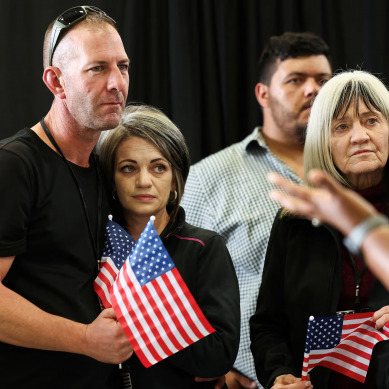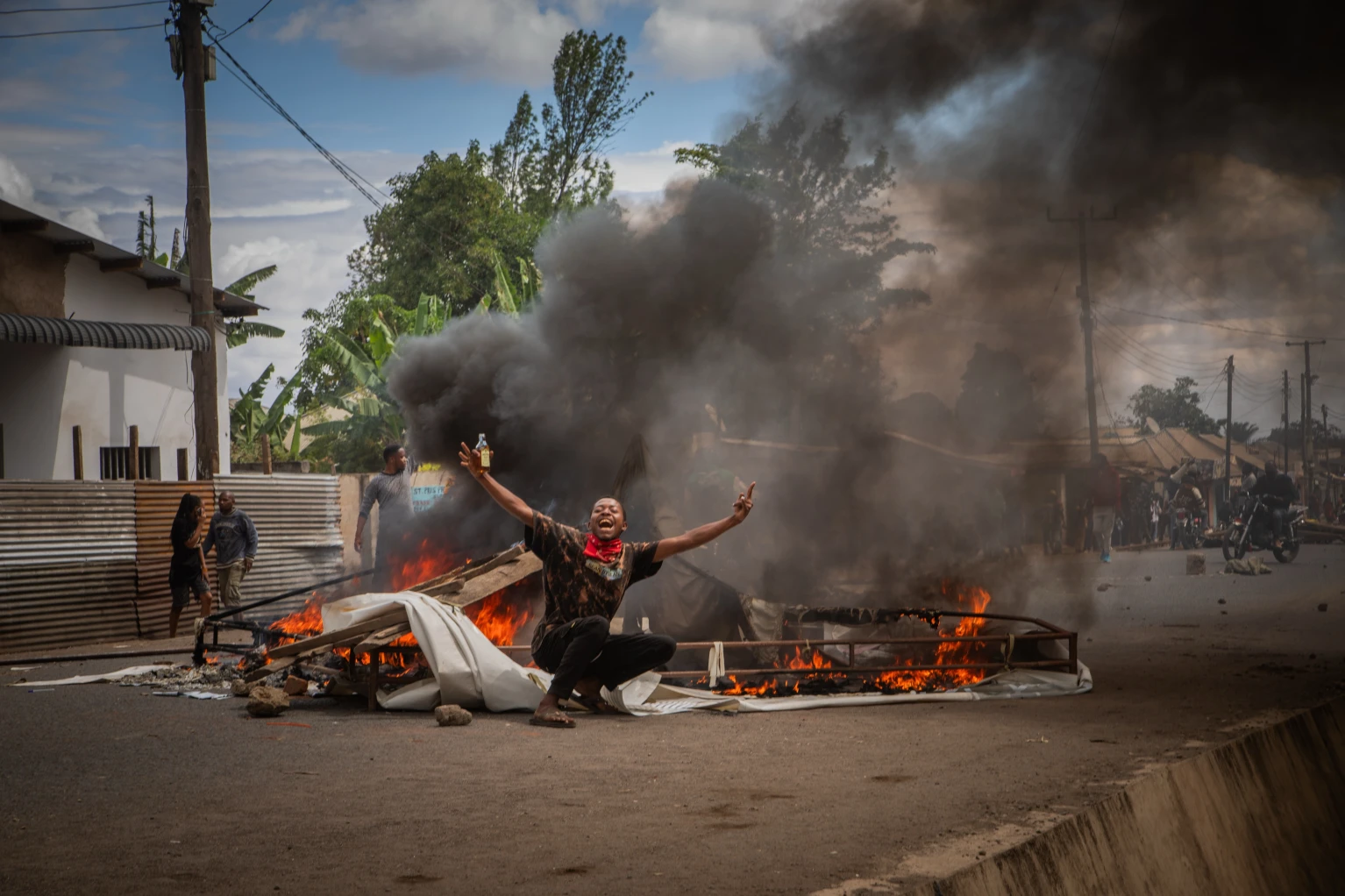
Hundreds of protesters took to the streets for a second day of demonstrations in Tanzania on Thursday after a disputed election, while Amnesty International reported that two people have died, lower that the 10 that had earlier been reported by the European Union.
With internet still shut down, the upsurge in violence is fuelling speculation about the whereabouts of country’s top leadership. On Thursday, social media was awash with unverifiable reports that former President Jakaya Kakheti – perceived to be President Samia Suluhu Hassan’s ‘guarantor’ of presidency – had fled to neighbouring Kenya and the president has retreated to her home in Zanzibar.
The disruption of the internet makes it difficult even for the state to repulse or confirm rumours that could further escalate the violence. The decision to paralyse the internet in the hope dousing Gen Z anger with the unpopular regime appears to be working against the state.
To be able to put the facts straight, the country needs internet services.
After the protests broke out on Wednesday, the government shut down the internet, imposed a curfew and deployed the military to the streets.
The ruling Chama Cha Mapinduzi or CCM (Revolutionary Party), which has been in power since independence in 1961 after changing name from Tanganyika African National Union – TANU), sought to extend its rule in Wednesday’s election, with presidential candidates from the two main opposition parties barred from running.
The incumbent, President Samia Suluhu Hassan, faced 16 other candidates from smaller parties who barely campaigned.
The electoral body on Thursday announced through state television that President Hassan had taken an early lead, garnering 96.99 per of the votes in 8 out of 272 constituencies tallied early Thursday.
Lawmakers from the European Parliament said in a statement Thursday that the elections in Tanzania were “neither free nor fair” and urged democratic partners to “stand firm in the defence of democracy and human rights.”
Turnout during Wednesday’s election was low, and chaos broke out in the afternoon as protesters burned a bus and a gas station, attacked police stations and vandalized polling centres.
Two people, a civilian and a police officer, died in Wednesday’s protests, according to Amnesty International. The government has yet to comment about casualties in the ongoing protests.
Tanzania’s government imposed a curfew Wednesday evening in the commercial capital, Dar es Salaam, where most protests had occurred, but protests continued late into the night.
The government asked public servants to work from home on Thursday to limit the movement of nonessential staff.
Roadblocks manned by the Tanzanian army were erected across the country, with those approaching them turned away if they could not prove they were essential workers.
Hundreds of protesters breached security barriers to access a road leading to the country’s main airport but were unable to enter.
Amnesty International called for investigations into the use of force on protesters by police.
Several protesters were injured in the town of Namanga, on the border with Kenya, as demonstrators lit bonfires on the highway and police fired tear gas to disperse them.
Business people said the protests had halted business operations in the usually busy border town.
Ferry services from the Tanzanian mainland to the semiautonomous archipelago of Zanzibar, whose electoral body is expected to announce results Thursday, were also suspended.
Tanzanians cast ballots for a president, members of parliament and ward councillors.
The main opposition leader Tundu Lissu remains in prison after he was charged with treason for calling for electoral reforms. The presidential candidate for the second largest opposition party, Luhaga Mpina, was barred from running.
- A Tell Media / AP report







